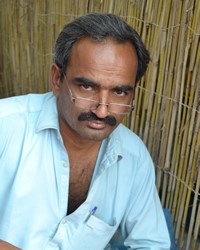Sindhi in Belize

Photo Source:
Khalid Mahmood - Wikimedia
Creative Commons
|
Send Joshua Project a map of this people group.
|
| People Name: | Sindhi |
| Country: | Belize |
| 10/40 Window: | No |
| Population: | 6,800 |
| World Population: | 528,700 |
| Primary Language: | Sindhi |
| Primary Religion: | Islam |
| Christian Adherents: | 0.00 % |
| Evangelicals: | 0.00 % |
| Scripture: | Complete Bible |
| Ministry Resources: | Yes |
| Jesus Film: | Yes |
| Audio Recordings: | Yes |
| People Cluster: | South Asia - other |
| Affinity Bloc: | South Asian Peoples |
| Progress Level: |
|
Introduction / History
The Sindhi people are an ethnic group native to the former Sindh Province of the British colony of "India" which also included modern day Bangladesh and Pakistan. Today Sindh is one of the provinces of Pakistan. Most Sindhi peoples were originally Hindus or Buddhists, but the arrival of Muslim Arabs in the 7th century deeply influenced Sindhi religion and culture. Prior to 1947, Muslim and Hindu Sindhi lived together in the same region. Following the partition of India in 1947, most Hindu Sindhis migrated to present-day India, while many Muslim Sindhi emigrated to present-day Pakistan, where they are still referred to as muhajireen (refugees). This Muslim migration led Sunni Muslims to dominate Pakistan's Sindh Province. The Sindhi, named after the Sindhu (Indus) River, are also said to be one of the oldest people groups in Pakistan. Most of them have lived there for centuries and call themselves the pukka, or "real." Outside of Pakistan and India, Sindhi people are scattered all over the world, from the oil fields of the Middle East to the business centers of Hong Kong and Singapore to the Central American country of Belize.
What Are Their Lives Like?
Before the partition of Pakistan and India, the Hindu Sindhi owned most of the land. They also monopolized industry, trade, and education. The Muslim Sindhi were mostly unskilled laborers and tenants. However, when the Hindu Sindhi moved from Pakistan to India in 1947, the Sindhi culture was greatly affected. The vacuum that was created in Sindh Province was soon filled with educated Muslim Sindhi and Urdu from India. These Muslims quickly acquired a place of importance in Pakistan. A small number of the others have migrated to other parts of the world, including Belize.
What Are Their Beliefs?
The Sindhi in Belize are considered 100 per cent Muslim. However, in their homeland of Pakistan, the majority of the rural Sindhi have no clear understanding of their Muslim faith and still believe in "folk spirits." Before 1947, many Hindu and Muslim practices were combined. For example, it was not uncommon for both Hindus and Muslims to venerate the same saint. Today, the practice of saint worship still persists. Two religious ceremonies are closely related to birth: naming the child and shaving its head. At the naming ceremony, the father whispers, "Allah is great," into the child's ear so that Allah's name is the first thing the child hears. The head-shaving ceremony seems to be a symbolic act of sacrifice. The young child's head is shaved, and the hair is buried along with the bones of a sacrificed goat. Though there are many Sindhi Muslims in Pakistan, and the Belize Sindhi are Muslim, other Sindhi who venture around the world are usually the Hindu Sindhis.
What Are Their Needs?
There are no known believers among the Sindhi in Belize. However, there are many Christian resources available in their Sindhi language—including the complete Bible, audio Bible recordings, the JESUS Film, and other audio-visual Bible-centered materials.
Prayer Points
Ask God to raise up prayer teams for the Sindhi who will begin breaking up the soil through worship and intercession. Pray for called, equipped believers to go to the Sindhi of Belize to develop relationships with families, leading to a church planting movement that will bless these Muslims. Pray for effective distribution of the JESUS Film among the Sindhi. Ask God to anoint Christian broadcasts to be aired in the Sindhi language.